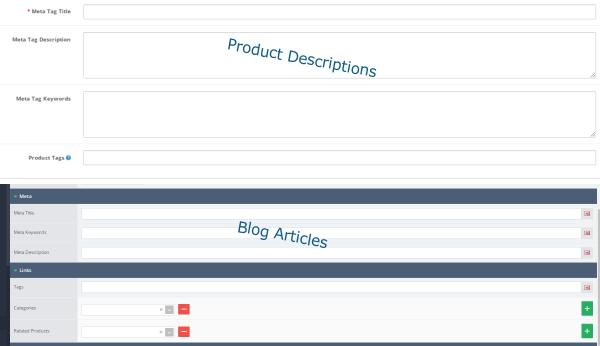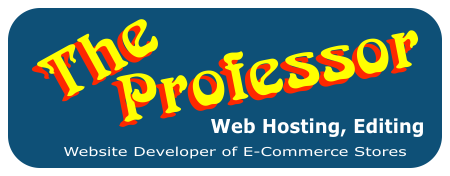
Don't use product tags for seo, Use Meta Tags Instead
If you're running an online store or maintaining a blog, you may have come across the option to add product tags or blog tags. While they seem like a great way to help categorize and organize your content, relying on them for SEO purposes can actually harm your website's ranking. Let’s dive into why you should avoid using store product tags for SEO and focus on better alternatives like meta tags and categories.

Why Product Tags Harm SEO
Product tags are designed to organize your store's catalog, but they aren't intended to enhance your SEO. When used improperly, product tags can actually create more problems than benefits for your site’s visibility.
Here's why:
Duplicate Pages: Every time you create a new product tag, it generates additional pages that essentially show the same or similar content. Search engines see these extra pages as 'duplicate content,' which can negatively impact your rankings. Duplicate content confuses search engines, diluting the value of your actual product pages.
Thin Content: Tags often lead to thin pages—those with little to no valuable content. If you have a page with only a list of products under a particular tag, it lacks the substance that search engines want. This can result in a poor user experience and even penalties from search engines.
Wasted Crawl Budget: Search engines allocate a certain amount of resources to crawl your site. If search bots spend their time crawling duplicate tag pages, they may miss the more important, well-optimized pages, leading to lost ranking opportunities.
Meta Tags: The Right Way to Optimize Your Pages
Instead of using product tags for SEO, your focus should be on meta tags. Meta tags, including meta titles and meta descriptions, help search engines understand the content of your pages. Well-crafted meta tags provide clear signals about your content's relevance to a user's search query and are critical for ranking.
- Meta Titles: Include your target keyword and make it compelling to entice users to click.
- Meta Descriptions: Use this space to summarize the page content in a concise, keyword-rich format.
Meta tags help search engines know exactly what your page is about without generating multiple duplicate pages.
Use Categories to Organize Products, Not Tags
Categories are a much more powerful tool for organizing your store's content. Categories group related products under broader headings, providing an intuitive way for users to navigate your store and improving your site structure for SEO.
Categories Reduce Duplicate Pages: Unlike tags, categories don't generate multiple thin pages for each keyword. Instead, they consolidate related products under one comprehensive page, helping you avoid duplicate content issues.
Internal Linking Opportunities: Categories create clear paths for internal linking, which search engines love. By linking your product pages back to category pages, you enhance your site's overall structure and improve its crawlability.
Same Rule for Blog Articles: Avoid Using Tags
The same principle applies to blog articles. Adding a tag to each post creates individual pages for those tags, but those pages are typically filled with similar blog posts, creating a mess of thin, low-quality content. Over time, this harms your blog's SEO, just like with product tags in e-commerce stores.
Instead of tagging blog posts excessively, organize your articles into well-structured categories. This helps both search engines and readers navigate your content, and it avoids the issue of creating unnecessary pages that clutter your site.
Conclusion: Leave Product and Blog Tags Blank
When it comes to SEO, using product or blog tags is more likely to hurt than help. These tags are great for internal catalog organization but should not be relied upon to boost your search engine rankings. Instead, optimize your site by:
- Focusing on meta tags for SEO.
- Using categories to organize products and blog posts.
- Avoiding the temptation to tag everything—it's better to leave them blank.
By making these adjustments, you’ll help your website avoid duplicate content issues and improve its overall SEO performance.

Leave a Comment